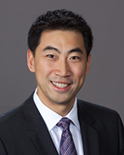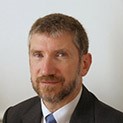Actuaries with No Borders
The actuarial profession is global. In the ever-growing business world, more and more actuaries bring unique expertise, business knowledge and global perspectives to their international-related work. Many of them also serve the international community through volunteer work.
We invited two actuaries with broad international experience to share their stories with us. Genghui Wu, FSA, FCIA, MAAA, CFA, FRM, vice president and actuary for Prudential, was born in China with work experience in both U.S. and Canada. Hans Wagner, FSA, chief actuary of ICBC-AXA Life in Shanghai, China, has worked and lived in four continents. They both currently serve on the Society of Actuaries (SOA)’s China Committee.
Read about their actuarial journey and broad international experience, what motivated them to become actuaries, their advice on the exam process, and the many rewards of an international career.

Genghui Wu, FSA, FCIA, MAAA, CFA, FRM is a vice president and actuary in the Internal Audit Department with responsibilities for Prudential’s Actuarial and Finance Audit teams.
Previously, Genghui held various senior positions within different areas in Prudential, including investment senior vice president for the Individual Annuities and Group Insurance general account portfolio management. Prior to that, he was vice president and actuary in Corporate Actuarial, where he was responsible for providing actuarial oversight to Prudential’s Annuities and International businesses.
Genghui currently serves on the Board of Directors for the SOA, is chairman of the Board of the SOA’s International Committee, and is on the Board of Directors at Prudential China JV. He is a seasoned speaker in industry meetings and conferences, providing subject expertise to both domestic and international audiences.
Why did you decide to take the SOA exams and become a fellow, and what does this qualification mean to your work/career?
I like the challenge SOA exams bring and the knowledge accumulated from completing these exams. I also enjoy becoming a better individual and being a part of a group of prestigious professionals. The qualification obviously bring job opportunities, but more importantly, the process of becoming an actuary makes people better rounded and more confident from both life and career perspectives.
We know you currently serve as a SOA China Committee member. Why would you like to volunteer for the actuarial community, and in particular, working on the SOA’s international activities?
I was born in China, and studied and practiced my actuarial profession in both Canada and the U.S. Throughout my career, thus far, I have been fortunate enough to work in large insurance companies with global footprints. Working in the various roles within global insurance companies, it is inevitable to be involved in international activities. A combination of my background, my work responsibilities and my professional interests made me an international actuary from the beginning, with specific interest in China. My volunteer role at the SOA at the Board of Directors and chair of the International Committee allowed me to be more engaged in the China committee, as part of the SOA key international initiatives.
What advice you would like to pass on to young actuaries, about the profession or the career path?
Being involved in international work and activities bring an actuary unique perspectives and capabilities that will differentiate him or her from others who may not have similar experience. It definitely marks a plus in your career path under the big scheme of globalization. In addition, you have the luxury of meeting all kinds of neat people and senior executives who share the same vision as you, with even more energy and enthusiasm that can make your mind fly.

Hans Wagner, FSA is the chief actuary of ICBC-AXA Life in Shanghai, where he is also responsible for the Risk Management function. Previously, he held the roles of group chief life risk officer and corporate actuary at AXA's corporate offices in Paris, France. His teams provided oversight for life product and technical risks as part of AXA's global risk management network. Prior to that, he was responsible for actuarial issues related to financial reporting under IFRS and U.S. GAAP standards, as well as coordinating AXA's Embedded Value disclosures and internal value management.
Before moving to Paris, Hans was AXA's chief actuary for Southeast Asia based in Melbourne and Hong Kong, and US GAAP Regional Manager from Melbourne. Prior to joining AXA, he worked for Ernst & Young in the U.S. and for a number of U.S. life insurance companies. Hans is former chairman of the CFO Forum's Embedded Value Working Group and served on the International Accounting Standards Board's Employee Benefits Working Group. He is a frequent speaker at industry events. As a long-time volunteer, he has served on various SOA committees in the areas of section communities, education and professional development.
Why did you decide to take the SOA exams and become a fellow, and what does this qualification mean to your work/career?
After graduating from university, I worked for several years as a high school teacher, teaching mostly math, but also physics and coaching several sports. I come from a family of teachers (both parents, one brother, two uncles...) and knew that career well; seeing some friends working in the business world, I was interested in trying it.
Becoming an actuary was a way to use my math skills to get into the business world—plus they were offering raises for passing exams, instead of me needing to take loans to go to grad school! So I started as an actuarial student with MetLife in New York City. MetLife at the time recruited quite a few ex-teachers who they felt were likely to have good communication skills and some maturity compared to fresh graduates. I discovered I liked the work, became an ASA while still with Met, and then an FSA after moving to AMEX Life near San Francisco. Working as an actuary has given me interesting intellectual challenges, a new perspective on the business world and indeed on the risks and opportunities everyone faces in life, the chance to live on four continents, and a comfortable financial position. I still sometimes wish I had done something more physically tangible like civil engineering or architecture, but I am happy with my choice.
We know you currently serve as a SOA China Committee member. Why would you like to volunteer for the actuarial community, and in particular, working on the SOA’s international activities?
I asked to move to Shanghai from Paris when AXA and Minmetals planned to welcome Industrial and Commercial Bank of China (ICBC) as their new partner, because I saw a chance to play a significant role in the development of the insurance industry in the world's great growth market. Serving on the SOA China Committee is another avenue towards that goal—to help the actuarial profession, the insurance industry, and more broadly the Chinese economy and society develop in a healthy manner. I do believe insurance has a noble purpose in improving people's lives, and the actuarial profession has a very important role for the whole industry. It is very exciting to work on developing that together.
What advice you would like to pass on to young actuaries, about the profession or the career path?
One advice is to choose the right exam pace for yourself. I wanted to pass all the exams as quickly as possible, and finished in less than five years. After I was done it was really great to have time to enjoy spring flowers and fall colors—I did study quite hard in getting done and missed some things while studying. A good friend had a wholly different approach—he planned to take each exam two times; the first time he created his study notes, and the second time he worked from his notes to prepare to pass. He spent less time on each attempt, so didn't miss experiencing the seasons for a few years, but probably spent more total time studying and definitely finished after more years. But it worked for him!
The other advice is to work on communications skills, and remember that while working with actuaries is great, your career will be much richer if you have the communications skills to work with many other professionals.
